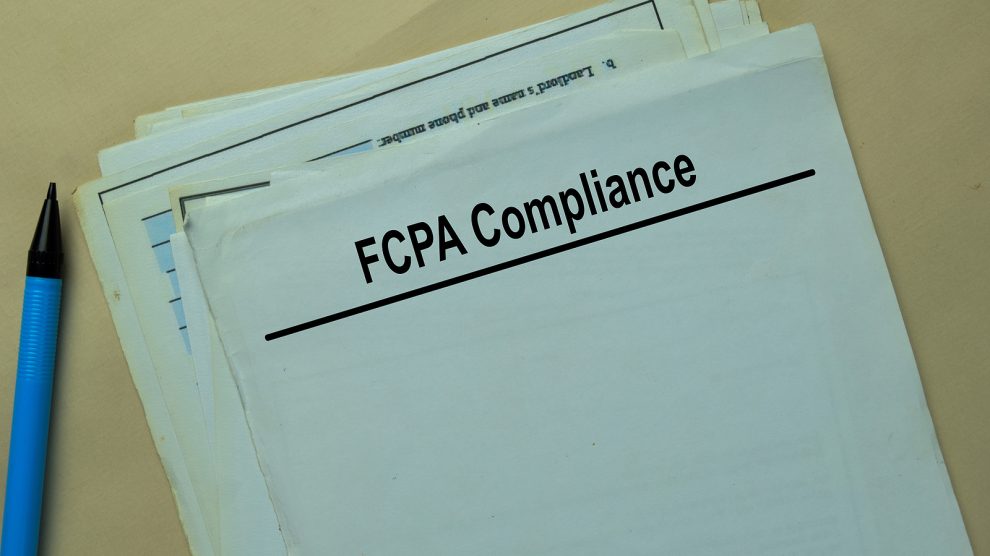As enforcement of the Foreign Corrupt Practices Act becomes increasingly vigorous, multinational companies are finding themselves in a complex and dynamic regulatory environment.
Over the past two decades, the Foreign Corrupt Practices Act (FCPA) has undergone a transformation that few could have predicted.
Emerging from relative obscurity, it has risen to become a significant concern for international businesses. This concern is primarily driven by the robust enforcement of the FCPA by regulatory authorities such as the US Securities and Exchange Commission (SEC) and the Department of Justice (DOJ).
With increasing scrutiny, particularly concerning payments to foreign officials, a solid understanding of the FCPA has become crucial for businesses operating abroad.
At the heart of the FCPA is the prohibition against payments to foreign officials. This has become a central concern for corporations after several high-profile cases put the spotlight on the risks of non-compliance.
For example, Alcoa Inc., one of the world’s largest producers of aluminium, was involved in a case that highlighted the severe implications of violating this provision. Alcoa had to pay a staggering 384 million US dollars in fines and disgorgements to the DOJ and SEC for having funnelled bribes to Bahrain’s royal family through a middleman.
The FCPA strictly prohibits such actions, holding companies accountable if they were aware or knowingly permitted such an act of bribery.
Another critical aspect of the FCPA, and one that has often been misunderstood, is the state of mind requirement. The FCPA stipulates that acts contravening the anti-bribery provision must be performed “corruptly”. This wording is crucial because it broadens the scope of the legislation and holds companies liable even if they had a lesser degree of knowledge about the illegal conduct.
As a result, companies can no longer use the strategy of “willful blindness” to shield themselves from legal repercussions.
Given the breadth and complexity of the FCPA, companies must protect themselves with robust compliance programmes.
The DOJ and SEC, recognising the unique circumstances and needs of each company, discourage a “one-size-fits-all” approach to compliance. Instead, they have outlined hallmarks of effective compliance programmes, which include a strong commitment from management, a clear code of conduct, proper oversight, regular risk assessments, comprehensive training, clear disciplinary measures, thorough due diligence, confidential reporting mechanisms, and regular testing and review of the compliance programme.
An effective compliance programme can significantly mitigate potential FCPA violations and minimise liability.
However, the benefits extend beyond mere legal compliance. Demonstrating a “culture of compliance” can lead to more favorable treatment from authorities in the case of violations. It can also have positive effects on the company’s reputation, employee morale, and stakeholder relationships. Thus, it is in the best interest of companies to invest in comprehensive, tailored compliance programmes that cater to their specific needs, risks, and challenges.
As enforcement of the Foreign Corrupt Practices Act becomes increasingly vigorous, multinational companies are finding themselves in a complex and dynamic regulatory environment.
The harsh penalties for FCPA violations, as exemplified by the Alcoa Inc. case, underscore the necessity for a proactive stance on compliance. Companies must view a comprehensive compliance programme not merely as a legal requirement but also as a strategic initiative that can protect their organisation from severe financial and reputational damage.
Therefore, by fostering a culture of compliance, continuously updating their practices in line with evolving legal standards, and proactively addressing their specific business realities, companies can not only navigate the FCPA effectively but also build a more ethically sound and resilient organisation.
As regulatory scrutiny intensifies and the business landscape becomes more complex, a robust compliance programme isn’t just good business practice — it’s a critical investment in the company’s future.
This content has been produced in collaboration with a partner organisation through our Global Visibility Programme. Our programme helps companies boost their digital presence and strengthen the thought leadership of their experts. Find out more here.
The original article is located at ComplexDiscovery.com.


Add Comment